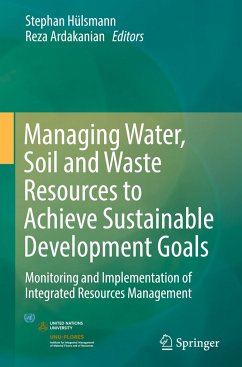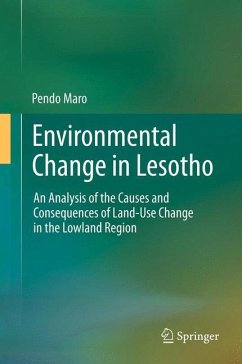
Pro-environmental Behaviors
Versandkostenfrei!
Versandfertig in 6-10 Tagen
91,99 €
inkl. MwSt.
Weitere Ausgaben:

PAYBACK Punkte
46 °P sammeln!
This book offers a much-needed practical and conceptual guide for various pro-environmental behaviors. Written by an expert in both the environmental psychology and engineering fields, the book presents an overview of various pro-environmental behaviors (Chapter 1), the psychological background of behaviors (Chapters 2 and 3), how to survey and understand pro-environmental behaviors using questionnaires (Chapter 4) and how to know the actual environmental burdens derived by each behavior using life-cycle assessment (LCA) (Chapter 5), and measures to foster the behaviors and selected case studi...
This book offers a much-needed practical and conceptual guide for various pro-environmental behaviors. Written by an expert in both the environmental psychology and engineering fields, the book presents an overview of various pro-environmental behaviors (Chapter 1), the psychological background of behaviors (Chapters 2 and 3), how to survey and understand pro-environmental behaviors using questionnaires (Chapter 4) and how to know the actual environmental burdens derived by each behavior using life-cycle assessment (LCA) (Chapter 5), and measures to foster the behaviors and selected case studies for practitioners (Chapter 6). Readers will find Chapters 1, 4, and 5 particularly unique and useful; they provide an overview of many environmental behaviors and also the practical academic tools for analyzing environmental behaviors, such as questionnaire procedures, questions lists ("scales" in psychology), statistical tools, software, LCA methodologies, and databases.
The book addresses the needs of academics and practitioners and is well suited as a textbook and reference guide for those studying or working in environmental engineering (systematic research), social psychology (environmental psychology), environmental education, and sustainability science. Policymakers will find the questionnaire list useful, as it can help them to grasp citizens' environmental concerns and actual behaviors. The behavior list and LCA can be used to make manuals or guidelines for citizens to enhance environmental behaviors, and the case studies provide an informative basis for designing programs and workshops for citizens.
Although the field of "pro-environmental behaviors" has been intensively dealt with by European researchers, their approaches have largely been limited to psychological viewpoints and program (education) development through small case studies. Further, the target behaviors are often limited to recycling and energy/water savings.
In contrast, this book provides the first introduction to pro-environmental behaviors as a whole. As pro-environmental behaviors have become increasingly important not only in developed but also in developing countries, this publication represents a timely resource for the growing number of researchers exploring pro-environment behaviors.
The book addresses the needs of academics and practitioners and is well suited as a textbook and reference guide for those studying or working in environmental engineering (systematic research), social psychology (environmental psychology), environmental education, and sustainability science. Policymakers will find the questionnaire list useful, as it can help them to grasp citizens' environmental concerns and actual behaviors. The behavior list and LCA can be used to make manuals or guidelines for citizens to enhance environmental behaviors, and the case studies provide an informative basis for designing programs and workshops for citizens.
Although the field of "pro-environmental behaviors" has been intensively dealt with by European researchers, their approaches have largely been limited to psychological viewpoints and program (education) development through small case studies. Further, the target behaviors are often limited to recycling and energy/water savings.
In contrast, this book provides the first introduction to pro-environmental behaviors as a whole. As pro-environmental behaviors have become increasingly important not only in developed but also in developing countries, this publication represents a timely resource for the growing number of researchers exploring pro-environment behaviors.












